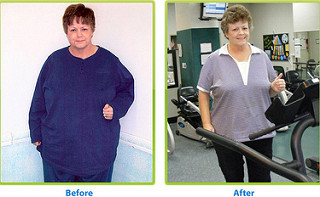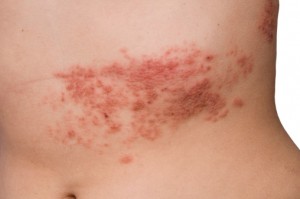Lose Weight > Common Sense To Lose Weight > Common Sense Article > The Myth Of Liposuction For Weight Loss
The Myth Of Liposuction For Weight Loss
In a culture that is very much focused on instant gratification, we hold our weight loss up to the same standards, expecting pounds to shed immediately and muscles to be defined with the lifting of one weight. It's no wonder that more and more people turn to liposuction for weight loss a procedure that rids the body of pockets of fat. But what people fail to realize is that liposuction for weight loss does not address the underlying weight issue and will not achieve desired results without the use of proper diet and exercise.
Liposuction is a surgical procedure that involves the making of several incisions around a particular area of the body that is storing excessive fat deposits. A surgeon then inserts an instrument into the incisions that allows them to vacuum out excess fat. The procedure, however, is far more invasive then it sounds; the surgeon must aggressively attack fat to remove it from the body and to maintain a consistent and smooth appearance. The liposuction patient who is most often put under general anesthesia faces recovery time like any other surgery - and some pain following the procedure.
What has been shown is that liposuction works for trouble spots that have not adequately responded to proper diet and exercise. An overall healthy person often responds well to liposuction if they are using the procedure as a supplement to good nutrition and healthy physical habits. However, liposuction for weight loss in a patient who is overweight, physically unfit, and in the habit of eating poorly will almost always fail. The reason is that liposuction for weight loss is not a magic bullet.
In such a case, the patient is required to adopt healthy eating habits and proper exercise in order to maintain the look of the liposuction. Liposuction for weight loss does not in any way mean that once the procedure is performed you can eat whatever you want and live a sedentary lifestyle.
If you are interested in liposuction for weight loss, it is imperative that you go about it in the right way. If you are not already doing so, you must immediately adopt a diet designed for weight loss and optimum health; one that includes the eating of whole foods such as fresh fruits and vegetables, whole grains, and lean proteins. Practice portion control, drink plenty of water, and stay away from foods high in fat and sugar. Additionally, it is important to implement a consistent exercise program that incorporates cardiovascular work, weight training, and core work such as Pilates, yoga, and a stretching program.
You may find that after several months on such a program you will see significant changes in your body's appearance and that liposuction for weight loss is unnecessary. If however, you still want to have liposuction to address trouble spots, you will now be in a position to enter in to the surgery as a healthy person who can maintain a healthy lifestyle following surgery.
Related Articles
-
Information On Acai Berry - What You Ought To Know
Information on Acai Berry is scarce even if this fruit was introduced
-
The R Factors Your Answer For Getting To The Perfect Body For Fitness And Health
Building a Perfect Body for Body Perfect Fitness and Health Is just Fo
-
The Best of the Weight Loss Programs– Fat Loss 4 Idiots
We are told that all of the issues that we have been doing just isn
-
Healthy Weight Loss At Home
Home is where the heart is... but the question is: is that a healthy h
-
The Simple Truth About Water And Weight Loss
The role that the consumption of water h
-
Quick And Healthy Weight Loss - Different Ways To Burn Belly Fat
Belly fat or spare tire as it is comically referred to at times is the
- DON'T MISS
- Weight Loss Tonics: What They Offer to Shed the Pounds
- Finding Ways to Lose Weight
- Follow These Tips For Superb Weight Loss Advice
- How To Lose Weight Without Exercise
- Top 6 Lazy Ways To Lose Weight
- Fat Binder Review - Eat All You Can Without The Weight Gain With A Fat Binder
- 7 Strategies to Curb Hunger While You Lose Weight
- Why That Piece of Bacon Could Kill You
- Become The Change You Want To See
- How To Lose 20 Pounds REALLY REALLY Fast




